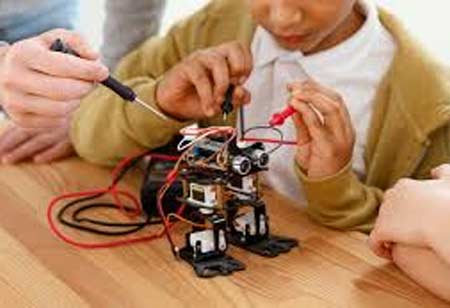THANK YOU FOR SUBSCRIBING
Be first to read the latest tech news, Industry Leader's Insights, and CIO interviews of medium and large enterprises exclusively from Education Technology Insights
The Evolution of STEM Education: Trends to Watch
The next generation of students will leverage advanced technologies like interdisciplinary methods, project-based learning, VR/AR, and computational thinking for future success.

By
Education Technology Insights | Wednesday, April 30, 2025
Stay ahead of the industry with exclusive feature stories on the top companies, expert insights and the latest news delivered straight to your inbox. Subscribe today.
The next generation of students will leverage advanced technologies like interdisciplinary methods, project-based learning, VR/AR, and computational thinking for future success.
Fremont, CA: The future world needs a talented, well-rounded, and well-equipped technical workforce. In response to such rapid breakthroughs, education is transforming science, technology, engineering, and mathematics (STEM). Such forward-thinking initiatives prepare students for future occupations, engage and inspire young minds, and provide them with the skills they need to flourish in an increasingly digital environment.
STEM education is becoming one of the hottest education trends because it emphasizes problem-solving, design, innovation, and critical thinking and includes the arts and traditional subjects. It can better understand innovation and handling complexity. STEAM education is gaining ground because educators and employers know the role of creativity and technical know-how in a successful team.
A current trend in education for STEM areas is project-based learning, which utilizes experience and problems from real life and engages learners to collaborate in environmental sustainability projects and technological advances. This improves understanding as it incorporates practical skills, teamwork, and resilience, besides catering to industry expectations from an employer regarding an employee having practical knowledge and problem-solving capacities in general. In this respect, it promotes a completely more effective learning setting.
Integrating virtual and augmented reality technologies in education transforms the learning process within the framework of STEM fields. Immersive technologies that facilitate student exploration of such complicated scientific concepts and performances of virtual experiments in simulated laboratory settings open up virtual laboratories, microbes, and a tour through the solar system and facilitate interaction with real-life overlays in augmented reality settings. They bridge the gap regarding access to resources, especially for students from areas where these facilities are unreachably remote or have inadequate means.
Coding and computational thinking are increasingly regarded as core skills in STEM education. Within the last few years, coding has become an essential part of curricula, beginning with early education, teaching logical thinking, problem-solving, and understanding technology. It is more than just programming languages; it enables students to break problems down, identify patterns, and devise efficient solutions with a priceless set of skills across disciplines. This is a sign of a more significant shift in education: to prepare students to create technology, not just to consume it.
The trend for personalized learning is gaining significant momentum in STEM education due to digital platforms and adaptive learning technologies that provide educators with tools to tailor instructions to a student's unique needs, learning pace, and interest. Personalization helps increase students' self-confidence while keeping them on track by mastering complex ideas at a pace that benefits them personally, making learning environments specifically tailored to this approach so effective in fields like STEM, where learning is faced with unique issues.
STEM education emphasizes soft skills like communication, teamwork, and emotional intelligence. Programs are more focused on building interpersonal skills for success in diverse teams. Such skills help people work well in groups, present ideas, and adapt to various settings. Employers generally accept such skills, which form the bedrock of preparation for any individual entering the field of STEM.







